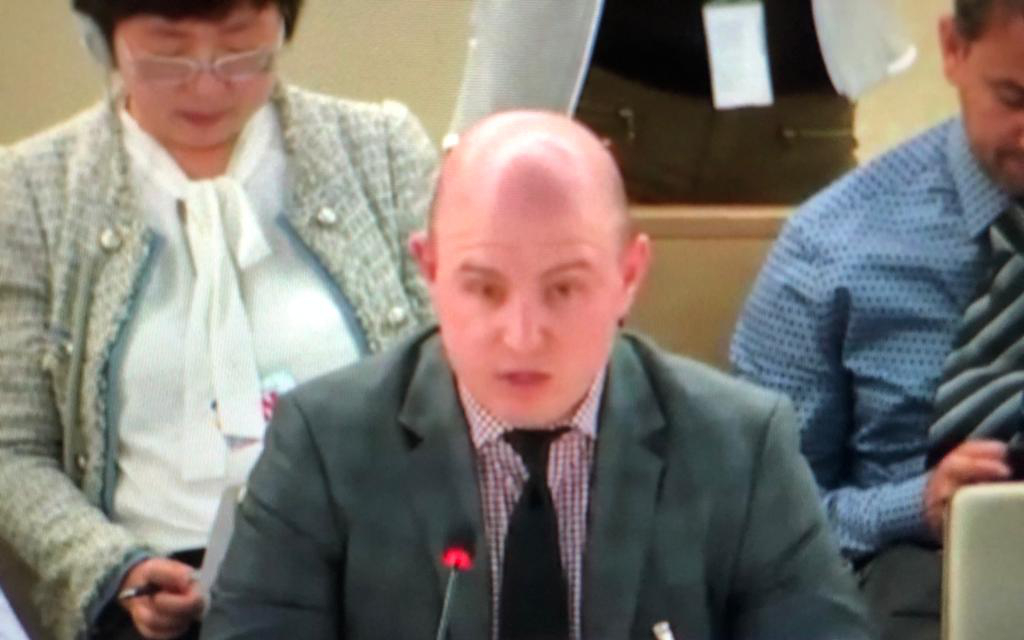On Wednesday 12 September at the 39th session of the United Nations Human Rights Council, Americans for Democracy in Bahrain (ADHRB) delivered an oral intervention during the Item 3 Interactive Dialogue with the Working Group on Arbitrary Detention. In the intervention, ADHRB raised the issue of arbitrary detention and torture in Bahrain, highlighting enforced disappearances, mass trials, and due process violations by the government as frequently documented. The intervention thanked the Working Group for its recent opinion on Nabeel Rajab’s case, and additionally raised the case of Hassan Mushaima and his denial of medical treatment while arbitrarily detained. Continue reading for the text of the intervention, or click here for a PDF of the remarks.
Mr. President,
Alsalam Foundation and ADHRB welcome the report of the Working Group on Arbitrary Detention, in particular the connection drawn between arbitrary detention and torture. This connection is clearly evident in Bahrain, where political prisoners and other arbitrarily held detainees regularly face torture in custody.
Enforced disappearance, incommunicado detention, torture-induced confessions, and due process violations are frequently documented in Bahrain, such as in case of the so-called “Zulfiqar Brigades,” a mass terrorism trial in which 115 Bahrainis were convicted and denaturalized.
We also note with appreciation the recent opinion issued concerning Bahraini citizen Nabeel Rajab, in which the Working Group determined that he is being arbitrarily detained in violation of his rights to freedom of opinion and expression, and that his detention is discriminatory and based upon his status as a human rights defender. Significantly, one of the Tweets that was used to convict him criticized the Bahraini government for failing to address widespread torture in Jau Prison.
We wish to bring to the Working Group’s attention another individual arbitrarily detained on discriminatory grounds: political opposition leader Hassan Mushaima. 70 years-old, Mushaima is serving a life sentence in Jau Prison on the charge of “attempting to overthrow the government,” for his pro-democracy activism. He has been subjected to ill treatment in Jau Prison, including the continued denial of healthcare and confiscation of books.
We echo the comments of the Working Group that widespread or systematic imprisonment and deprivation of liberty may constitute crimes against humanity, and we submit that widespread and systematic arbitrary detention imposed by the Al Khalifa government in Bahrain has reached this level.
We ask, will the Working Group comment on the use of mass trials to unfairly imprison and denaturalize individuals, particularly in the context of Bahrain?
Thank you.





